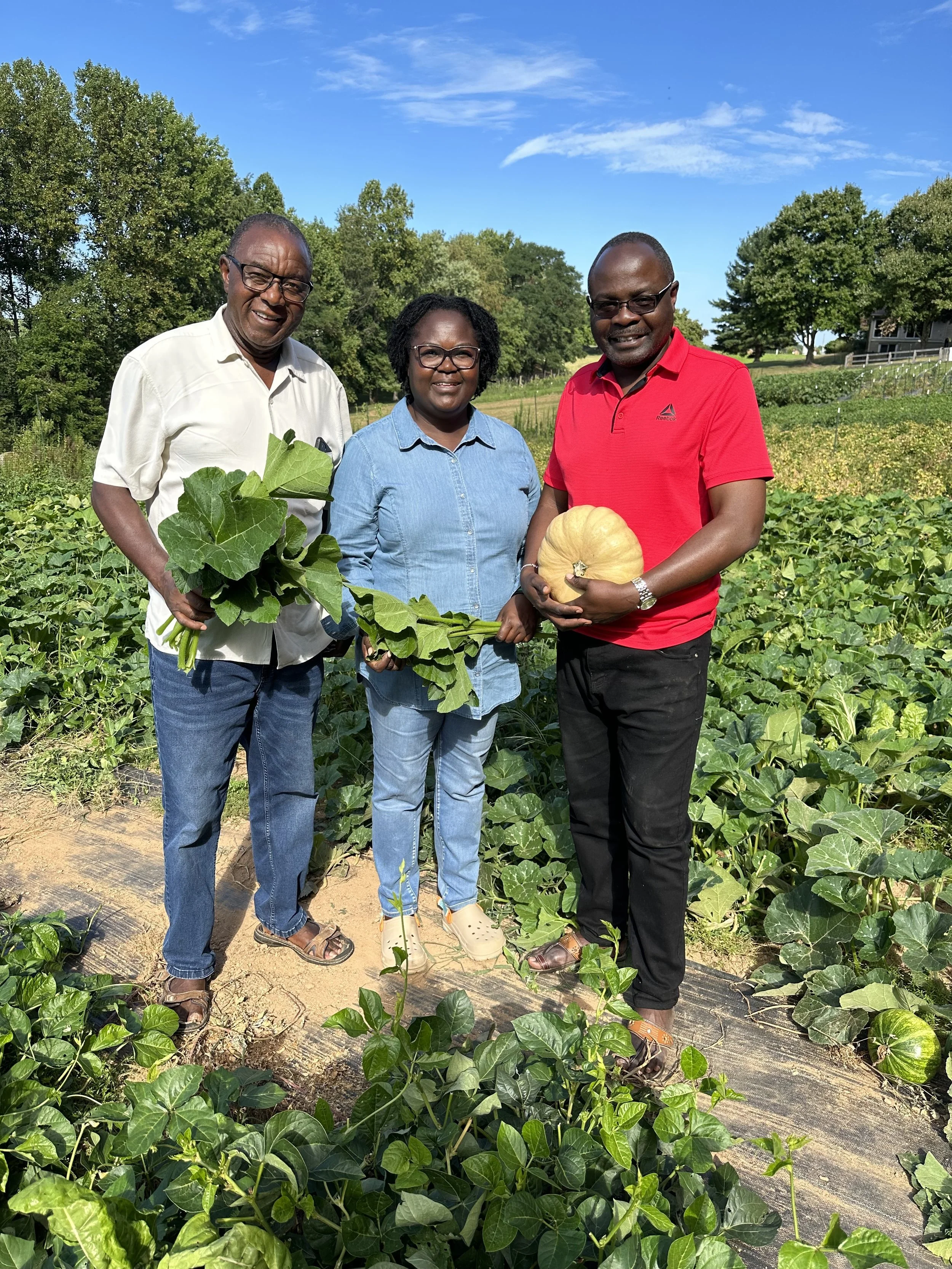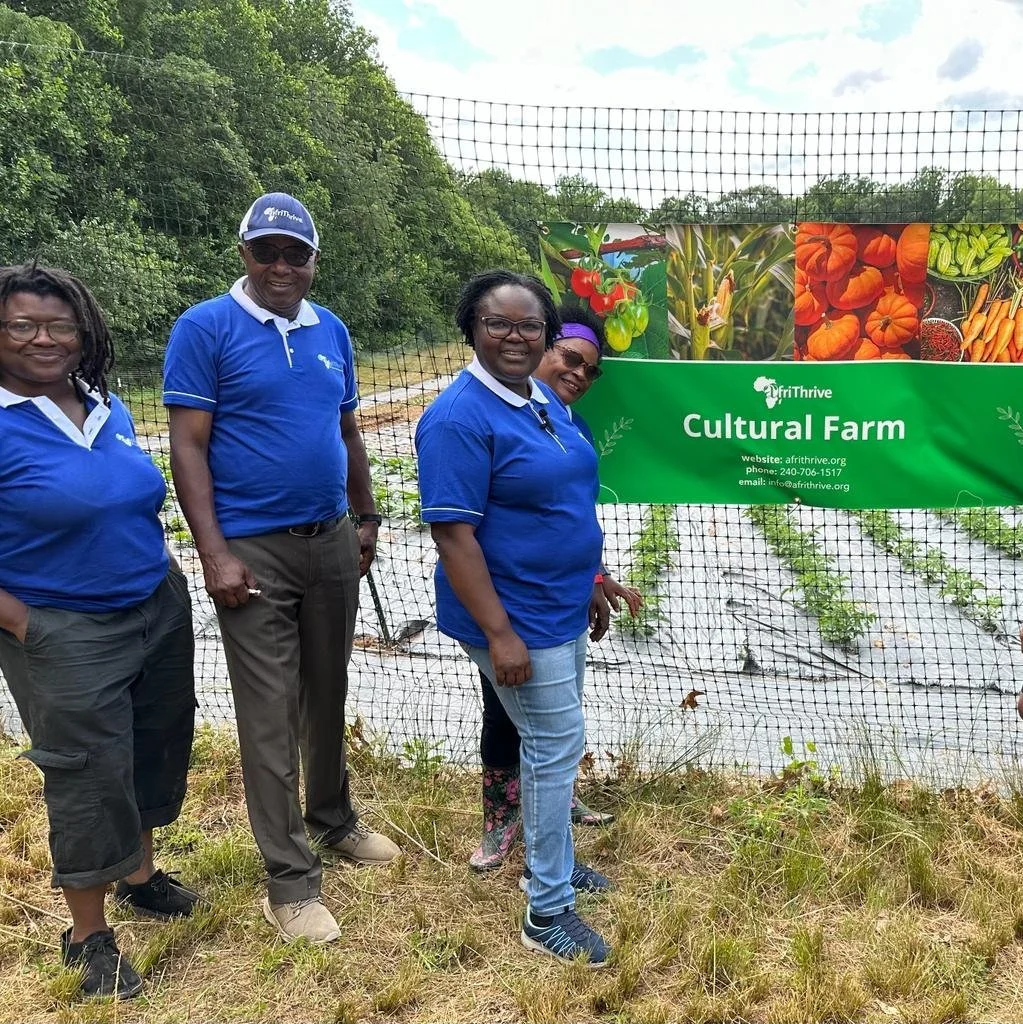Leaders of the Future Spotlight: AfriThrive CEO, Dr. Truphena Choti-Empowering Communities of the African Diaspora
AfriThrive Founder & CEO, Dr. Truphena Choti
When Dr. Truphena Choti moved to Montgomery County with her family, she could not have imagined that 20 years later she would be leading an organization feeding 20,000 people a year.
“I had a career in international development, helping communities around the globe – but I felt strongly that my community – here in Maryland -- needed my help, just as much.”
Born in rural Southeastern Kenya to a large family, Dr. Choti was raised by a single mother who inspired her to work hard and pursue her dreams. After marrying her husband, Charles Choti – a future professor of Kenyan History and Politics – the couple moved to the United States to raise their three children and continue their educations and future careers – Prof. Choti’s in academia and Dr. Choti’s in International Education & Development.
“International Development work is very demanding, rewarding work,” Dr. Choti shared. “It can be quite heavy, but it can impact thousands of lives for the better.”
Strengthening Africa – At Home & Abroad
After getting her PhD in International Education Policy at the University of Maryland, Dr. Choti spent more than a decade with organizations like the National Education Association and Nascent Solutions, designing programs to improve the quality of life for millions living in poverty in Sub-Saharan Africa including a school meals program, a community gardening program, and various initiatives to promote women’s education.
While Dr. Choti worked tirelessly for international communities abroad, she also carved out time for the growing international community in her backyard – particularly the African immigrant community.
The Greater Washington Region is home to more than 260,000 Black and African migrants – the third largest concentration of Black migrants in the country – a community which is growing rapidly. In Maryland, alone, the number of African immigrants has increased more than 42% over the past decade – with large populations coming from Nigeria, Ethiopia, Kenya, Ghana, and Sierra Leone.
While many migrants (like Dr. Choti’s family), are able to adjust to life in a new country, the vast majority face severe economic, social, and cultural barriers.
“Many migrants come to this country with credentials – they were lawyers and teachers in their home country,” Dr. Choti shared. “But because their credentials aren’t recognized in this country, they are unable to enter a job at a level they deserve. They’re forced to work 2-3 low-entry jobs just to make rent – placing undue burden on themselves and their families.
Other migrants come from rural farming communities, similar to where Dr. Choti grew up – but lack the resources and land access to put their skills to work due to economic and educational barriers.
Dr. Choti with her husband Prof. Charles Choti (left)
Dr. Choti became an early advocate for the local African community while serving on the PTA at her children’s school, witnessing firsthand the challenges that migrant parents face. She started her work in a place near and dear to her heart – in the garden.
“I started gardening as a way to reconnect with my roots,” Dr. Choti shared. “My family didn’t like processed or canned food. We missed fresh produce from my home in Kenya -- Okra, Sweet Potatoes, Kale. It was easier to grow it myself, than to try and find it in the store.”
As the garden grew, Dr. Choti sought out opportunities to share the fruits of her labors with her community. She shared with her neighbors and made produce deliveries to newly arrived refugee families. As word spread and interest grew alongside the vegetables, Dr. Choti began researching how she could more sustainably bring culturally appropriate food to her community.
“I felt that this is where my calling is,” Dr. Choti shared. “Responding to the call of my community.”
In 2019, she founded AfriThrive and began broader efforts to support a growing refugee community in nearby Riverdale Park (Prince George’s County) – all this, while still working a fulltime job in International Development. That would soon change, though -- as within a year the region (and the globe) were impacted by the COVID-19 pandemic.
Growing Through the Pandemic
Like many communities, the pandemic had severe economic and health impacts for the Black immigrant community – most notably, food insecurity. Dr. Choti says that cultural barriers in the food system presented a particular challenge. She shared one anecdote of a migrant mother who spent a night in the Emergency Room after accidently cutting herself while trying to open a can of ravioli received from a food pantry. The underlying cause was simple but striking -- the woman had never prepared canned food before – she didn’t own a can opener.
An AfriThrive food distribution in Prince George's County
As food insecurity increased, demand for AfriThrive’s services grew exponentially. Dr. Choti and a team of volunteers quickly mobilized to increase access to culturally appropriate foods and fresh produce. They partnered with DC Central Kitchen to organize weekly food distributions at a local church in Aspen Hill. Within months, the distributions expanded to locations in Gaithersburg and Baltimore, with additional partnerships with 4P Foods and Manna Food Center. By 2022, the organization had distributed more than 1 million pounds of food.
At the same time, AfriThrive sought ways to connect more migrants with the resources to grow their own food. They worked with Montgomery Parks through the Community Gardens program to connect and rent garden plots to migrant families to grow cultural vegetables and herbs.
Dr. Choti and members of the AfriThrive team at the Cultural Farm in Poolesville, MD
In 2022, AfriThrive partnered with Montgomery Countryside Alliance’s Landlink program to help connect more migrants with farming opportunities. Through this program, they were able to secure a 2-acre Cultural Farm in Poolesville, MD to grow more culturally appropriate fresh produce – thanks to a grant through The Community Foundation’s Food for Montgomery partnership.
Continued funding through Sharing Montgomery has allowed AfriThrive to continue to expand its operations and productivity. To date, the Farm has produced more than 30,000 pounds of indigenous African vegetables that have been distributed to the community.
“We are so grateful to Sharing Montgomery,” Dr. Choti shared. “Not only for the funding that has allowed us to continue our work, but also for the partnerships that it has allowed us to build within our community.”
Participants in AfriThrive’s Balozi Advocacy Program
Becoming ‘Balozi’
While Dr. Choti loves the work being done in the garden, she also recognizes the need for outside work –particularly in the advocacy space.
“Policy matters,” Dr. Choti exclaimed. “Unless we address the root causes of food insecurity, the cycle of struggle will continue to spin.”
AfriThrive recently launched an initiative called the Balozi Advocacy Program. Taken from the Swahili word for ‘Ambassador’, the Balozi program is a nine-month course designed to train youth and adults to become policy advocates for their communities.
“We give them space to write their own stories of experiences with the system,” Dr. Choti explained. “From settling in the US to dealing with food insecurity. Then we give them a knowledge of how to navigate the system so they can advocate for their needs.”
Dr. Choti says she hopes the program will empower communities of the African Diaspora to access the information and resources they need to thrive.
“If you have a dream, act on it,” Dr. Choti encouraged future Black leaders. “Don’t wait!”
“There’s no better time to get started than right now. Your community needs you!”
The Community Foundation is proud to partner with AfriThrive through our Food for Montgomery and Sharing Montgomery initiatives to empower communities of the African diaspora in our region. For more information about these initiatives, visit our website. For more information about AfriThrive, visit www.afrithrive.org








